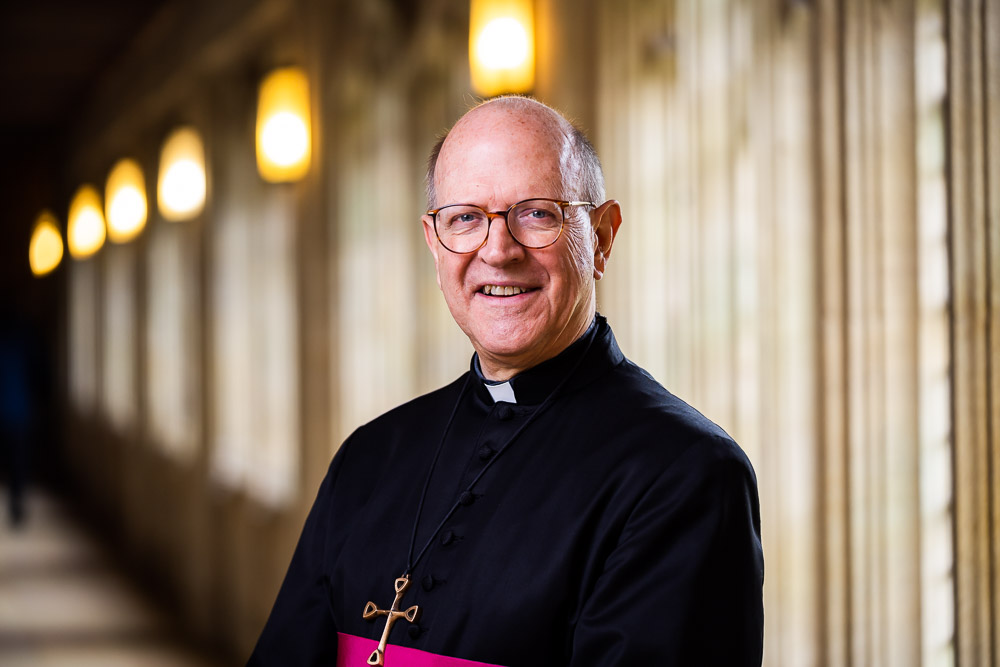
The Coronation of King Charles III is a celebration of hope for the future. My wife and I recently attended a wedding, as guests, and sitting there in a church full of people, young and old, enjoying the opportunity to celebrate the happy couple, I was struck how every wedding is a celebration of hope. A wedding is a celebration of hope for the couple, and all the possibilities that lie ahead for them, and also for the guests, particularly us older guests, finding our hope in the future reinforced, even restored. And as I pondered that, I realised that the Coronation was doing something similar for us as a nation, and more widely for the Commonwealth and indeed for many around the world.
The ceremony, rituals and pageant are declarations of intent for the future, and so expressions, very clear expressions, of hope. And with the Prince of Wales and Prince George, the Coronation takes place with two generations of heirs – so with a perspective even farther into the future. I think it is important for us to recognise just how profound and significant this expression of hope is, and how important it is for us as a nation. For me it is profound and significant because of the way in which the monarchy shapes us and provides a thread of continuity and trust in our lives. I know not everyone agrees, but it is hard to dispute that our identity as a people is tied up with being a monarchy, indeed, a constitutional monarchy.
It is interesting that monarchies, these days generally meaning constitutional monarchies, are the most trusted form of government in the world. People trust people, and so a person in a continuing position, not subject to the vagaries of elections, develops trust and holds in some ways the sense of security and identity of a nation. We saw that with Her Late Majesty Queen Elizabeth, and many of us have been struck how, as we began to emerge from the grief of her death, we could see the mantle being taken up by King Charles, almost seamlessly.
After such a long and extraordinary reign, there were those who anticipated at least some disruption of trust, but it seems that was not to be the case.
So the Coronation is a declaration not only of hope for the future but of the mutual trust between monarch and people that helps sustain that hope. And that hope for the future, and the trust and identity that comes with it, is possible because it is rooted in traditions and values that have sustained us into the present. Those traditions and values are held within the Coronation service itself and include courage and fortitude, justice, and mercy.
As I looked through the various artefacts that are used at the Coronation, I was struck by three values that are held in them and which seem to me to be particularly apposite for today.
The first was that of mercy. There are four swords used in the service, the Sword of State, dating from the Coronation of Charles II, the Sword of Temporal Justice, the Sword of Spiritual Justice, and the Sword of Mercy, all dating from the Coronation of Charles I. The Sword of Mercy has a blunted tip, symbolising the sovereign’s mercy. The same value is embodied in the Sovereign’s Sceptre with Dove, known as the Rod of Equity and Mercy, and symbolises the monarch’s spiritual role. In our world today, mercy, compassion and kindness, seem particularly valuable qualities for our King, not just to embody himself, but to encourage us all to demonstrate.
Secondly, the sacred ceremony of anointing holds amongst other profound values the commitment to service. King Charles and the Queen Consort will both be anointed with oil of chrism, oil pressed from olives from the Mount of Olives, and blessed by the Patriarch of Jerusalem and the Anglican Archbishop of Jerusalem.
Oil of chrism is also used in anointing those baptised, and those ordained to be priests. It is an ancient mark of designating a person for a whole-hearted life of service.Once again, this is a quality we both see in the King, and know we all need in our world today.
Thirdly, the orb depicts the world, and a sense of the embrace of the whole world in its diversity and complexity. That recognition of a wide embrace, an inclusive view of the world, is reflected in the ecumenical consecration of the oil of chrism. It is also clear in the unprecedented gift of Pope Francis to the King of fragments of the true cross, now incorporated into the Cross of Wales that will precede the King’s procession at the Coronation service. This wide embrace and inclusive perspective is further seen in the involvement of people from other faiths in the service.
These three values evident during the royal Coronation will sustain us into the future, and upon which we can build our own hopes for the future: mercy, service, and the wide embrace of all people in our shared world.
Photo credit: Tom Sopor